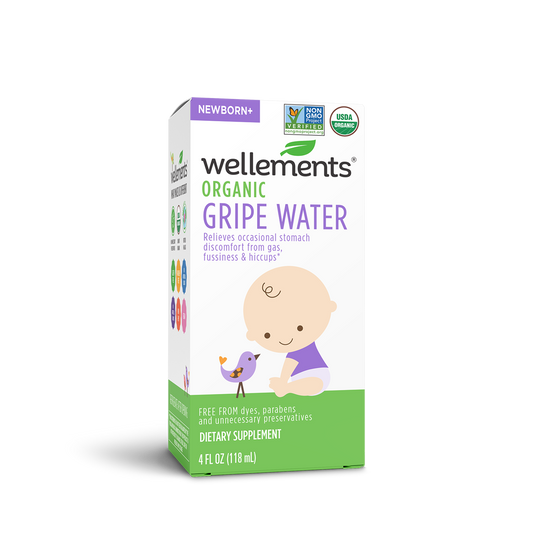Colic vs Reflux: What’s the Difference?
| updated:Share

This is groundbreaking, but there are tons of new things to learn when you have a baby. From deciding how you want to raise that tiny human, to how to function on zero sleep, to picking the brands you think are safest. There’s never a dull moment, that’s for sure, especially when it the so called rulebook of being a parent.
When it comes to common health questions, two of the things parents can get most anxious to learn about are reflux and colic and how one relates to the other. Although they are very common, it’s amazing how far a little knowledge can go when/if your baby experiences one or both. Hopefully the information below gets you started and lays a foundation for what causes these issues and how to deal with them as a parent.
What is acid reflux?
As mentioned above, neither of these issues are unusual, so first thing’s first: If your baby struggles with acid reflux, don’t panic. And how do you even know if your baby has it? Here’s a list of common symptoms to look out for:
- Frequent spitting up or vomiting (posetting)
- Baby refuses to eat
- Wet burps/hiccups
- Irritability while feeding
- Baby struggles to gain weight
Of course each case is different, so your baby may experience other symptoms, but these five are a good point of reference. What causes these symptoms to occur is when a still-developing muscle that connects the food pipe to the stomach, isn’t quite strong enough to hold down food. When that muscle allows food, aka milk, to come back up, it’s mixed with naturally occurring acid from the baby’s stomach that can cause discomfort (think pain similar to that of heartburn as an adult). As that muscle strengthens every day, the acid reflux will start to diminish in most cases.
So how is Colic different?
You’ve probably heard people describe a baby that cries a lot as “colicky.” That’s because baby colic, or more formally, infantile colic, is when a baby cries for more than three hours at a time. And although it isn’t an illness, doctors diagnose it based on “the rule of three.” This means a baby has colic when it cries in three-hour stretches at least three days a week and the behavior continues for at least three weeks.
The toughest part? There’s not a lot parents can do other than be aware of potential causes and find ways to comfort their baby. And speaking of potential causes, although there’s still a lot of mystery around what triggers colic, here are a few of the most noted causes and what to do in that particular situation:
- Discomfort stemming from colic and other digestive issues: Try relieving gas and occasional stomach discomfort with products like Organic Gripe Water.
- Overstimulation: If you suspect this is what’s causing your baby’s colic, limit visitors, too much noise, and new experiences. Try to create as calm an atmosphere as possible. They’ll have lots of time for this later!
- Allergies and sensitivities: Talk with your doctor about switching formulas or modifying your diet if you’re breastfeeding. Also, consider an air purifier in your home to alleviate allergens, and swamping out toxic cleaning products.
4.4 /
5.0
(64)
64
total reviews
Gripe Water
Sale price
$12.49
The link between acid reflux and colic
As you probably noticed, acid reflux and colic in babies can be linked. Even if your baby hasn’t shown signs of colic but has already experienced acid reflux, one of the best ways to stay ahead of the game when it comes to digestive issues is giving your baby a probiotic.
Many pediatricians are recommending probiotics from day one in order to help build healthy immune systems and support digestive function. Probiotics are not only good for overall gut health but some have shown to reduce crying time in newborns.
The first step to a healthy baby is understanding the causes and symptoms of things like acid reflux and colic and then learning how to treat them. But don’t stress out if you don’t have all the answers. Having a baby is a crazy journey and everyone figures it out as they go, so just remember that you will, too!



